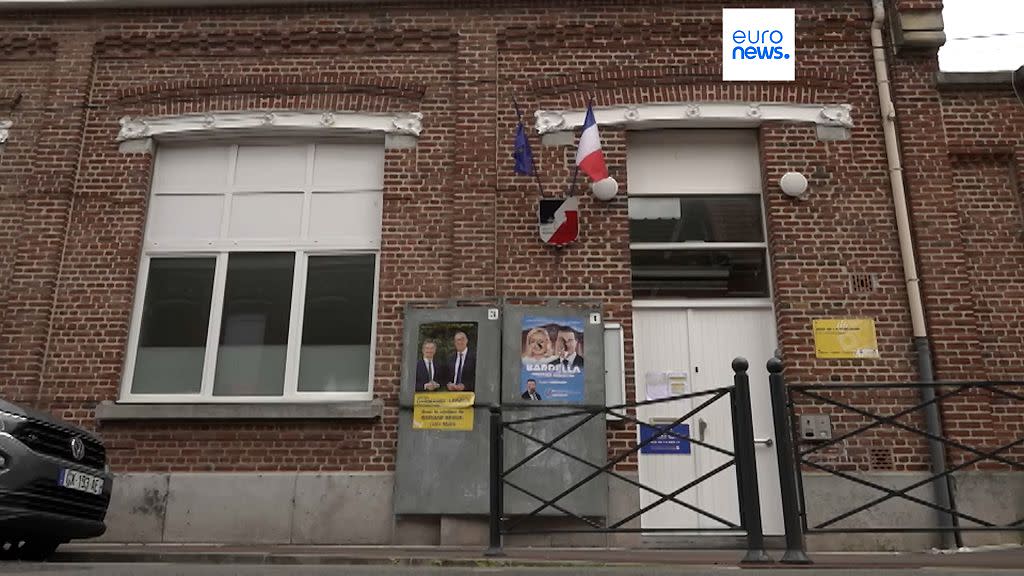French legislative elections: Voters' dilemma when candidates withdraw

Should they maintain their candidacy or withdraw to block the path of the far right? This is the dilemma facing the qualified candidates who came third in the first round of the legislative elections.
In the tenth constituency of Nord, which includes part of the town of Tourcoing, Macronist candidate and Interior Minister Gérald Darmanin narrowly came out on top in the first round with 36% of the vote. He was closely followed by the Rassemblement National candidate, Bastien Verbrugghe, who received 34% of the vote.
Leslie Mortreux, the Nouveau Front Populaire (NFP) candidate, came third with 24% of the vote, having secured the 12.5% of the vote needed to qualify for the second round. However, she decided to withdraw in order to block the Rassemblement National.
Blocking the RN
The candidate of the Révolution écologique pour le vivant (REV) (Ecological Revolution for Life) spoke of a difficult choice.
"You have to admit that Gérald Darmanin is not a Macronist like any other. Despite that, I couldn't look voters in the eye and tell them that I hadn't done everything I could to prevent the Front National from getting through," the LFI-REV candidate told Euronews.
A decision welcomed by the head of the Tourcoing section of the Socialist Party.
"It's a coherent decision that is in line with national recommendations but also in line with the convictions of the left-wing electorate, which has always in its history blocked the national rally," Ali Laazaoui, the head of the Socialist Party section in Tourcoing, said.
Voters divided
On the ground, voters have mixed feelings ahead of the second round. Some are in favour of the third-place candidates standing down to block the way of the far right.
"If they stand, it's certain that the Front National will win. So it's better to try and give the vote to Darmanin", said a left-wing voter.
"In the first round I voted left to stop the Rassemblement National, but for the second round I'm hesitant to vote Darmanin", explained Adam, 19, a part-time worker at Mister Cook. While he doesn't want to let the far right through, he does want to analyse the programmes before putting his ballot in the box.
"I think they're scared of the RN. They're scared and they're trying to defend themselves, but in any case they won't succeed", says an 18-year-old Rassemblement National voter, a groom, who is certain that the RN will win a majority in the Assembly.
Tired of being asked to vote 'against' the RN, rather than 'for' a candidate who shares their convictions, other voters are reluctant to give their vote to Gérald Darmanin, some of whose stances may have offended left-wing voters.
"We really have the impression that we're in a political group where it's a game between them and we have the impression that we're out of the game. Who was asked if these political arrangements were good? It's enough to say that we're standing in the way. How long arewe going to stand in the way?" asked a Saliame Khéloufi, an actress.
89 triangular results out of 306
Following the Rassemblement National's victory in the European elections, President Emmanuel Macron called for early legislative elections to renew the National Assembly.
Nationally, the Rassemblement National came first in the first round of the legislative elections with 33.20% of the vote. The Nouveau Front Populaire came second with 28.27% of the vote, followed by the presidential majority party Ensemble with 21.73%.
The high turnout in the first round (66.7%) mathematically increased the number of possible triangular contests, a configuration in which three candidates with more than 12.5% of the vote qualify for the second round.
Faced with the RN's historic score, the Nouveau Front Populaire and Ensemble called for a barrage against the Rassemblement national. In order to avoid any dispersal of votes, the candidates who came third were asked to withdraw their candidacy.
224 qualified candidates withdrew between the two rounds. As a result, of the 306 possible triangular contests in the second round, only 89 will actually take place.
Will this be enough to prevent the Rassemblement National from obtaining a majority in the Assembly? Results on 7 July.

 Yahoo News
Yahoo News 
